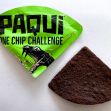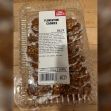The family of a 21-year-old college student who died after drinking a caffeinated beverage from Panera Bread has filed a wrongful death lawsuit. The family says the company's deceptive marketing and mislabeling of the drink led their daughter to consume a beverage she would have otherwise avoided.
The lawsuit was filed last Monday in the Philadelphia Court of Common Pleas on behalf of 21-year-old University of Pennsylvania student Sarah Katz. Katz, who had a heart condition, unknowingly consumed the heavily caffeinated drink on September 10, 2022. After consuming the drink, she suffered heart palpitations hours later and then suffered a fatal heart attack shortly after going to the hospital.
At age five, Katz was diagnosed with a heart condition known as Long QT Type 1 Syndrome. Because of her heart condition, her family says that Katz was careful with her caffeine intake and per her doctors’ orders, she avoided drinking energy drinks as they contain dangerous levels of caffeine for someone with her condition. According to the family, had Panera Bread properly marketed the beverage, Katz would have known to avoid it.
According to the civil complaint, Panera's lineup of “charged lemonades” contains an excessive amount of caffeine, making the beverage a “dangerous energy drink” that should be marketed as such. The lawsuit highlights that the popular brand Gatorade also has a “Charged” Gatorade lineup, with the meaning in that case implying additional hydration benefits. Because Panera Bread incorporated the term “charged” with its caffeinated lemonade offering, the lawsuit says Katz consumed the drink because she was “reasonably confident it was a traditional lemonade and/or electrolyte sports drink containing a reasonable amount of caffeine safe for her to drink.”
The lawsuit goes on to say that Panera Bread failed to properly warn customers about the high caffeine content of its charged lemonades. In many of the cafes, including the one where Katz purchased her drink, the charged lemonades were “offered side-by-side with all of Panera’s non-caffeinated and/or less caffeinated drinks” and advertised with designs that make them appear as though they are lemonade drinks and not highly caffeinated energy drinks. Because they are offered in the same section as non-caffeinated beverages, Panera ultimately marketed the drink to all of its customers, including children, pregnant women, and those with medical conditions.
In addition to the high caffeine content, the drinks are also advertised as being “plant-based and clean” and containing as much coffee as Panera's dark roast coffee. However, Panera’s charged lemonades have 390 mg of caffeine in the large, 30 fluid oz size drink, more caffeine than any of Panera's dark roast coffee sizes. Dark roast caffeine content ranges from 161 milligrams in the 12 fl oz cup to 268 milligrams in the 20 fluid oz cup. Additionally, the dark roast does not contain sugar while the charged lemonades contain anywhere from 82 grams to 124 grams of sugar.
The recommended caffeine intake for an adult should not exceed 400 mg daily, according to the Food and Drug Administration. With such high caffeine and sugar levels, the lawsuit maintains that the charged lemonades were “defective in design because it is a dangerous energy drink.”
In addition to the allegedly defective warning, the lawsuit accuses the chain of defective manufacturing. Panera’s charged lemonades, it says, are mixed in-house by store employees, making the manufacturing process “inherently dangerous because Panera Charged Lemonade involves mixing unsafe ingredients at certain concentrations.”
The lawsuit explains, “Defendants knew or should have known that proper quality control for manufacturing and or mixing the product is crucial to customer safety.” Because of this manufacturing process, the plaintiffs say, Katz suffered a cardiac arrest, which resulted in her death.
The lawsuit claims that Panera “knew or should have known of the foreseeable risk of cardiac-related injuries inherent in the design and manufacturing” of the charged lemonades.
Under strict product liability, the count made in the lawsuit, a plaintiff need only prove that they used a product as intended but were still injured as a result. The family is also claiming negligence because Panera failed in its duty to use reasonable care in the “design, formulation, marketing, sale, promotion, and/or distribution” of the charged lemonades. The lawsuit claims misrepresentation, breach of express warranty, and wrongful death.






